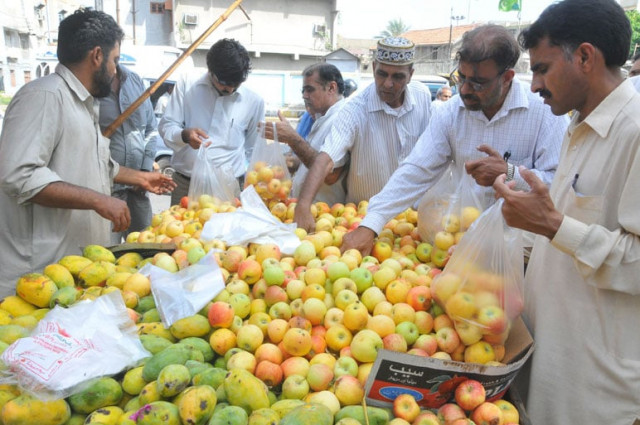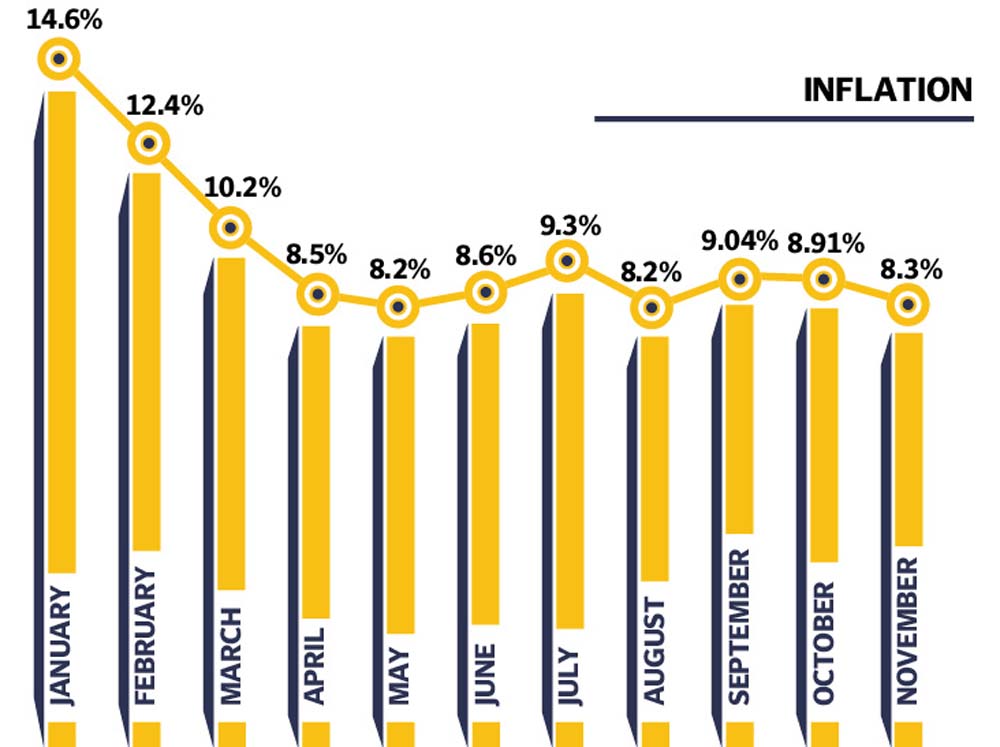Inflation spirals in 2020
Mishandling of wheat, sugar supply cost $520m in imports

The Pakistan Tehreek-e-Insaf (PTI) government’s mishandling of wheat and sugar commodities cost the country over $520 million in imports, giving over Rs100 billion hit to the national exchequer and above all forcing consumers to bear the brunt by paying 50% higher prices in 2020.
During the whole year, the inexperienced government of Prime Minister Imran Khan struggled hard to manage supplies of wheat and sugar. Its import operations were also marred by delays and high costs. All administrative steps taken to regulate prices of wheat and sugar failed to yield the desired results.

PM Imran’s decision to order and then made public the Federal Investigation Agency (FIA)-led wheat and sugar crisis inquiry reports also did not help to bring the prices down. Fingers were pointed at PTI’s bigwigs like Jahangir Khan Tareen, cabinet ministers and allies of the ruling party.
However, the 2020 sun set without seeing any of these political heavyweights paying even a fraction of the price paid by poor consumers.
According to Pakistan Bureau of Statistics (PBS) data, wheat flour was available at an average maximum price of Rs45 per kg in December 2019. Its rates soared to Rs67 by December 24, 2020 - a hike of Rs22 or nearly 50%. The better quality wheat flour cost even more, in the range of Rs80 to Rs85 per kg in the open market. Sugar was available at Rs71 per kg in December 2019, according to the PBS. But as of last week of 2020, its prices jumped over 26% to Rs90 per kg, the national data collecting agency reported.
However, the prices in the open market were still in the range of Rs100 to Rs110 per kg, despite the beginning of sugarcane crushing season. PBS data further revealed that from July through November 2020, Pakistan imported 1.6 million metric tons of wheat that cost the country $407.5 million. Another $115 million was spent on importing 253,405 metric tons of sugar during the same period.
The total import cost of $522 million on these commodities was more than half the benefit that Pakistan secured by getting debt relief from the richest 20 nations of the world.
Since 2015, the two federal governments of Pakistan Muslim League-Nawaz (PML-N) and PTI have allowed export of 5.5 million metric tons of wheat and its products, which caused shortage in the market. Out of this quantity, 731,601 metric tons of wheat (excluding wheat products) was exported by the PTI government in two years, according to the PBS.
The FIA inquiry report shows that total exports of wheat and its products by the PTI government in its first year in power stood at 1.5 million metric tons.
The mismanagement of wheat operations would also cost the national exchequer around Rs105 billion, which the Ministry of National Food Security and Research had proposed to be paid in subsidies by the federal and provincial governments. For the current season, the minimum wheat support price is Rs1,400 per 40 kg but the actual per 40kg cost of procurement, handling and transportation is Rs1,931 in Punjab, according to government officials.
Against the Rs1,931, wheat is being released to mills at just Rs1,475. The difference has to be bridged through subsidies. The PTI government also exported 873,411 metric tons of sugar during 2018-19 and 2019-20.

DESIGN: IBRAHIM YAHYA
The FIA inquiry committee found that the export of sugar was not justified as sugarcane production was expected to be low in harvesting season 2018-19 and with the export of sugar in January 2019, the prices increased sharply.
The report underlined that exporters gained benefit in two ways - first they were able to get subsidy and second they made profit from increasing sugar prices in the local market, as the price rose from Rs55 in December 2018 to Rs71.44 per kg in June 2019. Wheat and sugar were not the only two commodities that were mishandled by the federal and provincial governments. The federal and provincial governments also failed to ensure smooth supplies of perishable and non-perishable food items, which massively increased their prices.
During the week ended December 24, 2020, the prices of chilli powder increased 86.3%, eggs 60.2%, chicken 35% and mustard oil 19%. Prices of pulses and vegetables increased in double digits. The Consumer Price Index (CPI)-based inflation stood at 12.6% in December 2019. The pace slowed down to 8.3% by November 2020 but the prices consumers were paying did not reflect the official reported figures.
Key reasons behind the soaring prices were the governments’ mismanagement and lack of administrative controls by the federal and provincial authorities. Nothing was done during the outgoing year, which could have plugged those lacunas.
The government’s efforts to control prices have boiled down to weekly meetings of the National Price Control Committee, being headed by Finance Minister Dr Abdul Hafeez Shaikh. But this committee’s role is only limited to monitoring as it does not have the authority to give instructions or take decisions on bridging demand and supply gaps. Price trends in 2021 may not be much different from the just ended year. In the past one year, the government did not increase prices of electricity, which it may now have to increase by 25% in 2021. This will stoke inflationary pressures.
Among the highly consumed commodities is crude oil, which may record an upward spiral in the new year, as the world economy is expected to recover from the devastation caused by the deadly coronavirus contagion. Since the government is financially not in a position to absorb price hike, it will pass the increase on to end-consumers, which may keep inflation around current levels close to double digits.
Published in The Express Tribune, January 1st, 2021.
Like Business on Facebook, follow @TribuneBiz on Twitter to stay informed and join in the conversation.



















COMMENTS
Comments are moderated and generally will be posted if they are on-topic and not abusive.
For more information, please see our Comments FAQ